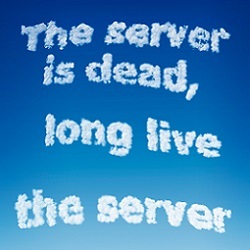 contact information
Research Staff Member at
Thomas J. Watson Research Center, Yorktown Heights, NY, US
contact information
Research Staff Member at
Thomas J. Watson Research Center, Yorktown Heights, NY, US
twitter @aslom and email aslom-()-us.ibm.com
 contact information
Research Staff Member at
Thomas J. Watson Research Center, Yorktown Heights, NY, US
contact information
Research Staff Member at
Thomas J. Watson Research Center, Yorktown Heights, NY, US
twitter @aslom and email aslom-()-us.ibm.com
I am a Research Staff Member in the Serverless Group in Cloud Platform, Cognitive Systems And Services department at the IBM T.J. Watson Research Center.
I am using AI and serverless to create delightful experience for business users in business applications and workflows. I am interested in applying emerging technologies (such as blockchain) to build next-generation of business applications that are cloud-native.
I am also co-organizing International Workshop on Serverless Computing (WoSC) to bring together researchers and practitioners to discuss their experiences and thoughts on future directions, talk slides are linked from: https://www.serverlesscomputing.org/workshops/
Previously I worked on web APIs ecosystems, business process analytics (process mining, clustering, etc.) and cloud-native service composition.
You can find a list of publications at Google Scholar and DBLP pages.
The Fifth International Workshop on Container Technologies and Container Clouds
Abstract: Containers and serverless computing are rising in interest and some would say are on top of the hype curve of the IT industry. The question remains: what is real and what is marketing? We look at what problems serverless computing is solving and how containers are key enabling technology. Why serverless should be an important topic for researchers? Why containers matter for serverless? Why serverless matter for containers? What is future of containers and serverless? And how does it relate to the future of computing?

By Paul Castro, Vatche Ishakian, Vinod Muthusamy, Aleksander Slominski
Communications of the ACM, December 2019, Vol. 62 No. 12, Pages 44-54, DOI: 10.1145/3368454
Abstract: Serverless computing -- an emerging cloud-native paradigm for the deployment of applications and services -- represents an evolution in cloud application development, programming models, abstractions, and platforms. It promises a real pay-as-you-go billing (with millisecond granularity) with no waste of resources, and lowers the bar for developers by asking them to delegate all their operational complexity and scalability to the cloud provider. Delivering on these promises comes at the expense of restricting functionality. In this article we provide an overview of serverless computing, its evolution, general architecture, key characteristics and uses cases that made it an attractive option for application development. Based on discussions with academics and industry experts during a series of organized serverless computing workshops (WoSC), we also identify the technical challenges and open problems.
Full text [ online ]
By Aleksander Slominski, Vinod Muthusamy, Vatche Isahagian
2019 IEEE International Conference on Cloud Engineering (IC2E), 97-101, DOI: 10.1109/IC2E.2019.00023
Abstract: We see a trend where computing becomes a metered utility similar to how the electric grid evolved. Initially electricity was generated locally but economies of scale (and standardization) made it more efficient and economical to have utility companies managing the electric grid. Similar developments can be seen in computing where scientific grids paved the way for commercial cloud computing offerings. However, in our opinion, that evolution is far from finished and in this paper we bring forward the remaining challenges and propose a vision for the future of computing. In particular we focus on diverging trends in the costs of computing and developer time, which suggests that future computing architectures will need to optimize for developer time.
Slides [ online ] [ PDF ] [ PPTX ]
Updated 2020-01